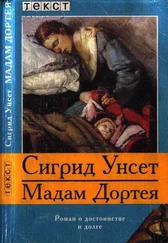Had the flu been a plague sent by God as a pre-Apocalyptic punishment? Boots thought so. “We know from the Bible that when a society violates God’s laws he will punish that society long before Judgment Day.” And when listeners to Heaven’s A-Poppin’! are invited to call in, most of them say they think Boots is right.
But PW said nobody could know for sure, just as no one could know for sure what would happen to children in the rapture. PW believed all children who were too young to have accepted Jesus would be saved, but Boots insisted this was contrary to Scripture.
“The children of the saved will surely be raptured with their parents. But the others, well, take a look at the Flood. Take a look at the destruction of Sodom and Gomorrah. God didn’t spare the children then, not even babies in the womb.”
“But we know that Jesus loved children above all,” argued PW. “We know that he is coming to destroy evil and bring perfect justice forever, and I cannot see him casting babies into the bottomless pit because their parents turned their backs on his gift. I can’t wrap my mind around our just and merciful savior doing this cruel and monstrous thing. I admit in this case there’s no crystal-clear verse. But I believe that although everything in the Bible is true, that doesn’t mean every truth is revealed there. We have to accept there’s a lot we don’t know. God may have some special plan for these children that we won’t find out about till the end.”
One evening, as the two men argued straight through dinner, Heidi fell asleep in her chair. With a sigh Tracy got up and started clearing the table. Starlyn, who lived with her divorced mother in Louisville, happened to be visiting for the weekend, as she did once or twice a month. She, too, left the table and followed her aunt into the kitchen. After a few minutes Cole picked up his plate and carried it into the kitchen, where he found Tracy clutching her middle, all flushed and teary from the effort to contain her laughter. Before her stood Starlyn, a metal colander clapped upside down on her head and a wooden spoon in her hand. Hitching one shoulder higher than the other, she flourished the spoon like a drum majorette, silently moving her lips as Boots’s voice boomed from the dining room.
Even making faces, even with the silly colander on her head, she looked beautiful. She was almost sixteen, and a head taller than Cole. She had rapture-child blond hair and gray eyes with gold dust in them, and her cheeks had the kind of plump round freshness you don’t see much except on babies. It had never occurred to Cole before that a nose could be beautiful, in the same way it hadn’t occurred to him that ears or feet could be beautiful. Nor could he have said what it was about Starlyn’s nose that made it beautiful, but he could have stared at her profile for hours. It confused him, this attraction to, of all things, a girl’s nose, and it shamed him, as did the bizarre desire that seemed to have come from the same confusing place, a place he hadn’t known existed in him before: the desire to suck her earlobes.
Darlin’ Starlyn. Cole did not have the courage to call her that, even if everyone else did. Mason had other names for her as well: Peaches ’n’ Cream (those cheeks). Sweet Little Sixteen. Her birthday was just a few weeks away, and a surprise party was planned.
In the kitchen Starlyn glanced in his direction and, as usual, appeared not to see him. Tracy wiped the tears from her eyes and smiled in a way Cole knew was meant to make him feel he wasn’t intruding. But his feeling of intruding was in fact too much for him; he dropped his plate clatteringly into the sink and immediately left the room again.
Anyway, as he thought later, he would have felt guilty joining them in making fun of Boots. Cole knew that a lot of people besides Tracy had problems with Boots, and that he tried even PW’s patience. But of all the people in Salvation City who’d been kind to Cole, Boots Ludwig may have been the kindest. He was a little deaf, Boots, and like many people who don’t hear well he sometimes forgot that others hear just fine. In the beginning, when Cole first arrived, he got used to hearing Boots murmur “tragic, tragic” whenever Cole happened to be around.
He’s my nineteenth grandchild, Boots told everyone. Whenever he came to the house he blessed Cole with something, and it was always something good, like a new video game, something he’d made sure Cole really wanted. And he called Cole “my dear,” as if Cole were a girl. Except that Boots didn’t like girls. Girls and women were not his dears; girls and women chafed him. He didn’t appear to like Tracy much, he was the only person in Salvation City not smitten with Starlyn, and he seemed angry with his wife most of the time.
“Poor Heidi,” Tracy said. “If it wasn’t for her, I’m not sure I could go on being nice to that man. All this nonsense about some innocent little candy! And frankly, if bad breath isn’t from the devil I don’t know what is.”
Cole agreed to be on the radio even though he didn’t want to do it, and even though he’d been told several times he didn’t have to do it. He agreed because he wanted to please Boots, and he wanted to please PW. But no sooner had he agreed than he began to regret it, afraid that he was going to let them down. But then he couldn’t bring himself to say he’d changed his mind, afraid it would make him look like a coward.
He knew all about how this could happen, how your intentions could be not just good but noble, and still somehow you end up disgracing yourself and disappointing others. People you loved, people you wanted to make happy, people you wanted so badly to think well of you.
And now he would be forced to remember a time he had been trying to forget. He’d be forced to talk about things he didn’t want, or even know how, to talk about.
His father used to accuse his mother of not being able to let anything go. She needed to learn to put the past behind her, instead of dwelling on what couldn’t be changed. “Don’t be like your mother,” he warned Cole, “unless you want to be depressed.”
And wasn’t PW forever saying that letting go of the past was an important part of being a Christian?
“You take Paul. He had to learn to forget the bad things that had happened to him, forget the bad things he himself had done as Saul. ‘Forgetting what lies behind and straining forward to what lies ahead, I press on toward the goal to win the heavenly prize to which God in Christ Jesus is calling us upward . ’ That’s how he tells it in Philippians. Forget and press on. That’s what we’ve all got to do.”
But now they were asking Cole to remember .
He remembered being allowed to stay in bed for days after he arrived, even though he wasn’t sick anymore. So many cots were packed into the room, you had to walk sideways. All through the night you’d be wakened by noise: a boy shouting in his sleep, a boy sobbing, two boys having a fight.
All day long boys came and went, some approaching Cole’s bed to stare but rarely addressing him, and he’d watched one of them steal another one’s sneakers, shaking a silencing fist at Cole before making off with them.
He wasn’t sick anymore, but it still hurt sometimes just to think. He still zoned out, momentarily forgetting what he was doing or where he was; he still had memory gaps. He felt like a man in a spy movie he’d seen, whose enemy injects him with drugs to skew his mind. But Cole knew his own mind was actually getting better.
In the hospital, after his first bout of fever, he’d had to be told all over again that his father was dead. Pause. His mother was dead, too.
Passed , they said. Your mother passed a week ago.
Читать дальше












